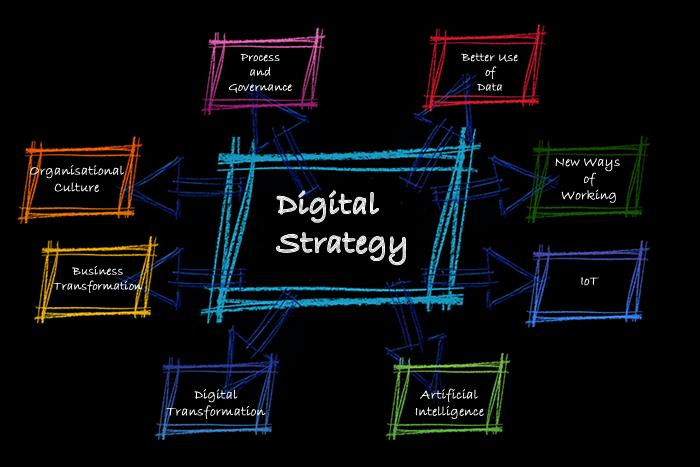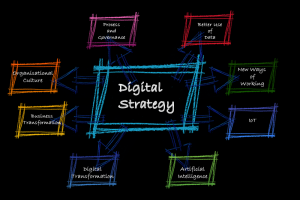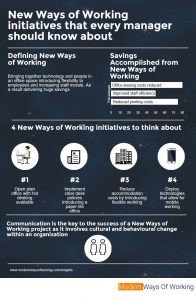As the wave of digital business transformation hits most, if not all organisations, changing landscapes, advancing technology, shifting and emerging markets, knowing, precisely what transformation is and having a vision can become unclear unless you have a digital strategy.
Encountering challenges on the way and learning throughout the process is fundamental to a successful business and digital transformation. We’ll cover successful business transformations in brands that we know.
Buzzwords like AI and machine learning are not just a hype, and becomes our reality. As this becomes our reality, for CEO’s understanding how these new technologies fit into business operations is sometimes tricky to envision.
Our research shows that experimenting, researching and testing is key to successful digital transformation. Digital and business transformation is a journey and an iterative one with continuous change.
Business Transformation in most cases is triggered by shifting markets.
As consumer demands are shifting, along with uncertain markets organisations need to be quick off the mark, in delivering change and transformation to survive in a continually changing world.
Taking Risks is Key to Successful Business Transformation.
Brands like Nike so too struggle to be quick off the mark to keep up with the latest trending consumer demands and this poses a risk to their organisation. But Nike continue to strive forward taking risks at the same time.
We’ve discovered that generally, business transformation is triggered by shifting markets and competition. Business transformation requires research, experimenting and testing.
So digital transformation is proving to be a challenging journey; however, if delivered and planned correctly, can prove to provide sustainable growth for an organisation. We know that the data revolution is here and so focusing your business needs and approaching business with a data-centric approach is the way forward. Our article on Why a data driven business is more likely to succeed through the digital age.
Digital is the norm.
Digital has become a way of life. We are the digital consumer having information at our fingertips at all times. With this in mind, your business, not only should you have a website that offers immersive experiences but also have a mobile app, engaging the consumer to your brand. Nike is an excellent example of engaging consumers online and offline through their store and their products, and so is IKEA; both cases we will be covering in this post.
If consumers have an abundance of accessible technology in their pockets, then surely retailers should be looking to create interactive digital experiences seamlessly connecting online and offline touch-points.
Some examples of business transformation that we cover include organisations like IKEA, Nike, McDonald’s, to name a few.
To learn about how we have helped organisations with business transformation examples visit: www.modernwaysofworking.com/insights
Our first business transformation example is IKEA.
IKEA’s business transformation was triggered by shifting markets with IKEA’s profits falling. As a consequence, IKEA announced it’s next steps of transformation. Since then, there sustained growth has been over several years of business transformation. IKEA has been very good at adapting and innovating for its customer base, adding value.
They have created opportunities while transforming with digital capability throughout their organisation, adapting to change with inspiration, energy and drive, and this is what set them apart. IKEA’s focus is digitisation and customer convenience.
Jesper Brodin, Chief Executive Officer, Ingka Group, says:
“We continue to grow and perform strongly. At the same time, we recognise that the retail landscape is transforming at a scale and pace we’ve never seen before. As customer behaviours change rapidly, we are investing and developing our business to meet their needs in better and new ways. We will put greater emphasis on making our existing stores even better and taking the opportunity to renew and reinvent our business in a way that is inspired by our history, culture and values. Our values guide our work and build our inclusive, open and honest culture. It’s all based on a spirit of togetherness and enthusiasm, and we will continue to transform with that spirit.”
You can read the IKEA press release here.
Nike get personal with consumers with insights from data to drive their business transformation.
Let’s take Nike as our next business transformation example. Nike leaders in retail technology. They are utilising technology to its full potential to drive and engage consumers to their brand.
Like IKEA, they too are very good at adapting to change and creating consumer personalisation and unforgettable immersive experiences.
The Nike Plus membership app does this well. Consumers gain a shopping experience in store while connecting to the Nike app while creating more of a personalised experience for the consumer creating memorable experiences.
As a result, increasing consumer loyalty and frequency. You can scan and go using the app or speak with an associate, and if it’s that easy, then you’ll keep going back for more convenient shopping.
Pizza Express, takes more of a personalised approach.
Next, Pizza Express has embarked on their journey of transformation. Pizza Express
created a global innovation centre in London for new concepts and brand creatives. Launching the first vegan menu in light of the media attention to allergies had allowed Pizza Express to experiment with new recipes. The training was key to staff to understand why consumers choose what they do and the ethics involved to follow through strictly.
Researching into and tapping into the markets using technology also played a big part in Pizza Express’s marketing communications using digital.
Events like Mother’s day were taken advantage of by using digital and generating over 1.1m views for their mothers day video, across a range of digital channels.
Pizza Express had a 7% increase in traffic to their website and a 17% increase in bookings for Mother’s Day.
Also, Pizza Express’s “The piccolo game” allowed children to interact with Pizza Express through augmented reality.
IBM too, have transformed their business. Allowing for advanced technologies, AI, machine learning and data.
According to IBM’s 2018 annual report, IBM achieved $79.6 billion in revenue and operating earnings per share of $13.81 in 2018.
Helping organisations like United Airlines, KPMG and BNP Paribas, to name a few with their digital and business transformation IBM can deliver the results of a successful business transformation programme. Staying relevant and innovating is the key to success. Knowing what the consumers want and delivering on that is essential for any business to survive, let alone thrive. By focusing and offering AI, data, analytics and cyber-security to organisations, IBM’s position in the market, as a leading provider of advanced technology services and solutions accounts for approximately $40 billion in revenue in 2018, with IDC ranking IBM number 1 in the market share. Let’s take a look at some of the organisations IBM have helped. IBM 2018 Annual Report can be found here.
United Airlines undergoes business transformation with the help of IBM. The service has improved by using mobile app technology by streamlining communications within the organisation through different time-zones. Rising to what the consumer needs are the focus and re-thinking business operations is key to transformation.
They are using a mobile app to report flight issues which report to the ground crew immediately.
KPMG is also using IBM technology, technology a contract analysis application to long breakdown contracts. Reading contracts with AI makes it much easier and quicker to get through lengthy, detailed agreements.
BNP Paribas, an investment bank, is transforming digitally to improve operational efficiencies, by doing so, leveraging IBM cloud for their data centres, they provide capabilities for speed, agility and scalability, without compromising security and confidentiality of their consumer data.
Vodafone’s Approach to Business Transformation is Data-Driven
Vodafone, a 5G network provider, is working with IBM to deliver on new integrated solutions to improve consumer experiences from a data-driven approach.
Intel’s vision: If it’s smart and connected then it’s best with Intel
Intel, the world leader in manufacturing and design, with a vision “if it smart and connected then it’s best with Intel” moved from a pc-centric company to a data-centric organisation and as a data-driven business increased their operational efficiencies and have become a growing company. The shift in becoming a data-driven business to address the increasing needs of the market, creating a wealth of business opportunities, and positioning themselves in the market to be the leaders on data-driven solutions. Shaping and
“Intel’s strategy is to provide the technological foundation of the new data world.”
—Brian Krzanich, Intel Chief Executive Officer.
Business Transformation at McDonalds gets underway
McDonald’s business transformation includes modernising restaurants driven by technology and increasing consumer engagement through digital by way of loyalty initiatives. Like Nike’s membership app, McDonald’s too are focusing on consumer loyalty.
Again, like the above examples of business transformation, quickly adapting to change, to shifting markets and consumer demands, McDonald’s strives to stay relevant and transform to the growing needs of the market.
As well as their consumers, McDonald’s drive initiatives for their employees. A typical example, challenges and rewards incentivised its employees to increase speed and agility during breakfast through their drive-thru.
McDonalds offers a new shopping experience to it’s customers adding value by offering personalised service.
In summary, all of the business transformation examples we have seen, organisations are adapting rapidly to shifting trends and markets. A data-driven focus to enable a personalised consumer experience, in turn, resulting in consumer loyalty.
If you are about embarking on your business transformation and need some, then our consultants can offer advice and expertise. Get in touch: www.modernwaysofworking.com/contact
Further reading blog posts:
1.Why Exceptional Leadership Matters in Digital and Business Transformation.
2.Why a data driven business is more likely to succeed through the digital age.
3.Digital Transformation will often fail with the existing culture.
4.Why it matters to leverage Artificial Intelligence for business transformation.














